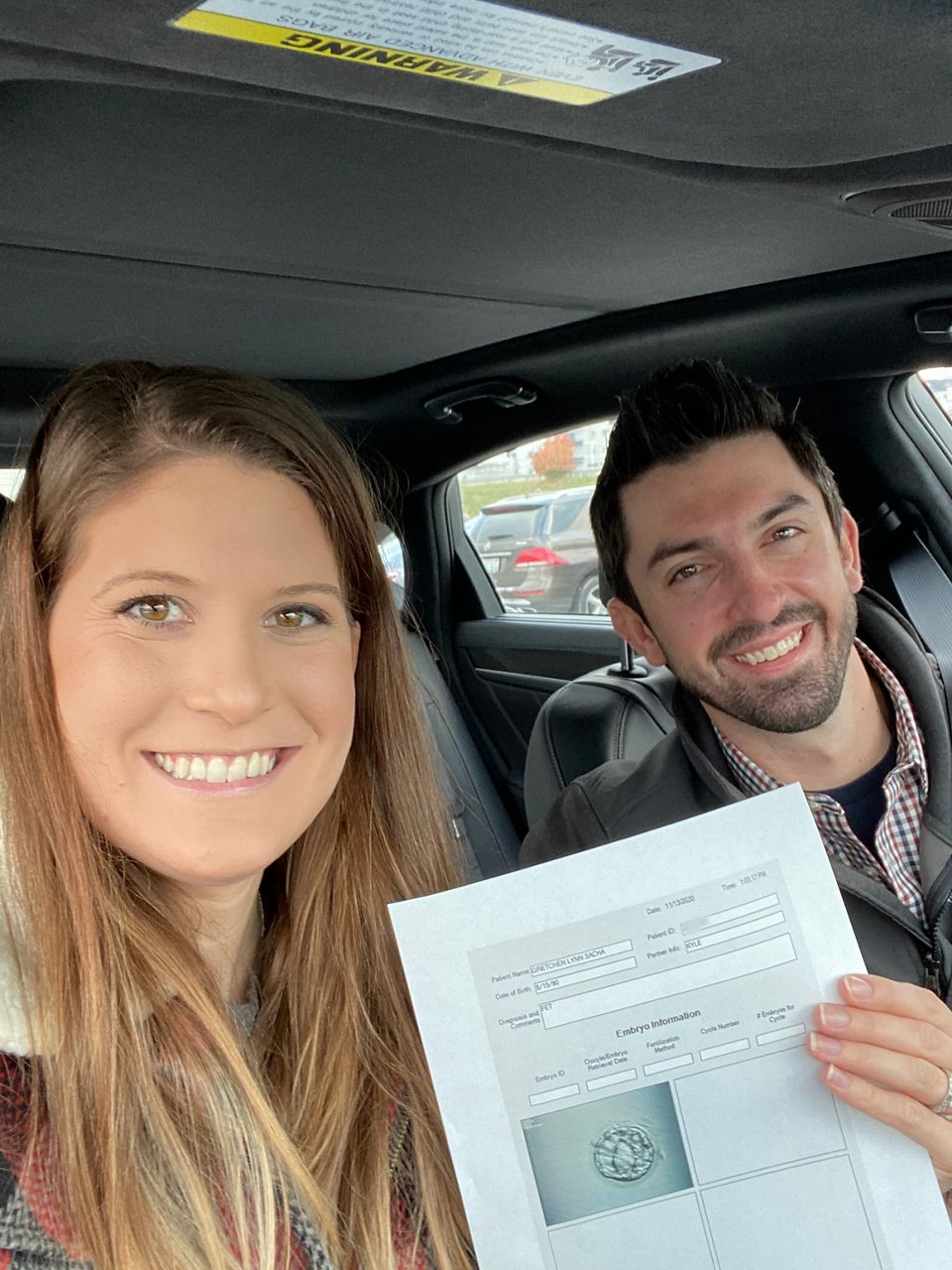CLEVELAND — Gretchen Sacha is expecting her first child with her husband, Kyle.
“I always knew I wanted to be a mom,” she said.
The couple met in pharmacy school at the University of Toledo. And today, the are both pharmacists.

They’ve been married for five years and for a while now, these two have wanted to be parents.
Ultimately, Sacha became pregnant through in vitro fertilization.
Gretchen Sacha is expecting her 1st child with her husband. That’s him giving her the 1st dose of the COVID-19 vaccine. Both are pharmacists. As a pregnant healthcare worker in the COVID ICU, her decision about the vaccine was one she thought long and hard about. @SpectrumNews1OH pic.twitter.com/Nv8eKuxaoD
— Micaela Marshall (@MMarshallTV) March 8, 2021
“It was hard, but I try to see the positive and the humor in it that of course two pharmacists would need science and a lot of medications to get where we needed to go,” said Sacha.
Right now, the 30-year-old is in her second trimester.
“We’re ready. Like we’re perfectly ready,” she said. “No concerns.”
Soon-to-be moms have to make important decisions that impact not just their life and their body, but their baby’s life, too.
Whether to get the COVID-19 vaccine became one of those big decisions that she and her husband thought long and hard about.
“With the mechanism of action in this novel vaccine, there really is no risk of it integrating into our DNA, integrating into a baby’s DNA,” said Sacha.
Sacha’s exposure to COVID-19 was a key factor in the decision-making process. She is a critical care pharmacist at the Cleveland Clinic, working exclusively in the COVID ICU.
“I have seen first-hand how this virus effects anybody in the community from all walks of life. All shapes, sizes, everything. Any type of past medical history to no past medical history, I’ve seen this impact them and patients not survive it,” said Sacha.
After lots of research and conversations to weigh the risks, Sacha decided getting the vaccine was the right choice for her. As an added bonus, her husband was able to give her the first shot of the Moderna vaccine in January.
“Afterward, we both looked at each other and we just thought this was the right decision. We both felt relieved,” she said. “We felt like we did the best thing for myself and for our baby.”
She’s now fully vaccinated and feeling good.
“Every ultrasound I have, every time I hear the baby’s heartbeat, that is comforting,” said Sacha.
The reality is, there is little data regarding pregnant women and the vaccine. But data does support that pregnant women have an increased risk for severe illness if they do contract COVID-19. Pregnant women weren’t part of the Pfzier, Moderna, or Johnson & Johnson clinical trials, but some women did become pregnant after trials began.
“The hard part about that too is that just really shows that we should not be excluding pregnant women from these trials because then we have to have these conversations and make these hard decisions,” she said.
The Centers for Disease Control and Prevention reports there is no evidence that the COVID-19 vaccine causes any problems during pregnancy or negatively impacts a baby’s development.
The CDC is using a health checker app called V-safe to keep a registry of pregnant women who have gotten the vaccine. The most up-to-date numbers show that more than 30,000 pregnant women indicate they have been vaccinated so far.
Dr. Tosin Goje is an OBGYN at the Cleveland Clinic, and she is encouraging her pregnant patients to get the vaccine.
“We want to practice evidence based medicine. We want to go with the evidence and so far that’s what the evidence is showing, no safety signals,” said Goje. “It’s a risk-benefit situation and the American College of Obstetricians and Gynecologists actually recommends that pregnant patients can reach out to their providers and discuss with their providers to make the best decisions for them.”
Last month Pfizer began enrolling pregnant women into a clinical trial to test the safety and efficacy of the vaccine. The global study involves about 4,000 pregnant women that will be vaccinated during 24 to 36 weeks of gestation. Infants will be monitored until they are about six-months-old as well to see if a protective antibody can be transferred from a vaccinated mother to her baby.




